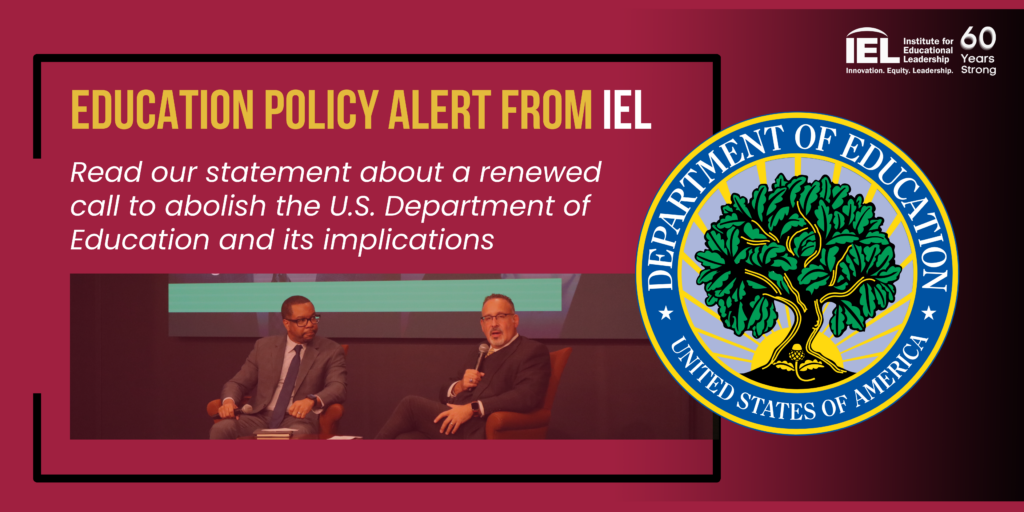Senator Mike Rounds (R-SD) has introduced a seven-page senate bill S. 5384, “A Bill To Abolish the Department of Education, and for Other Purposes,” cited also as “Returning Education to Our States Act.”
The bill was referred on November 21st to the Committee on Health, Education, Labor, and Pensions (HELP). Although the bill is unlikely to emerge from the HELP Committee, given the transition to the new Congress on January 3rd, it does offer a glimpse into a potential approach to dismantle the U.S. Department of Education (DOE).
The proposed bill transfers and distributes select programs and activities across other federal agencies and gives states block grants for elementary and secondary, career and technical, and postsecondary education. The Department of Treasury would play the most significant role.
Of note are the following proposals:
- Individuals with Disability Education Act (IDEA) and Impact Aid (under Title VIII) would be transferred to the Department of Health and Human Services (HHS).
- Federal Pell Grant, Direct Loan Program, Perkins Loans Program, and the Family Education Loan Program would move to the Department of Treasury, as would all activities under Title IV parts F, G, and H, the Health Education Assistance Loan program (title VII), the Education Sciences Reform Act of 2002, and the Educational Technical Assistance Act of 2002.
- Office of Indian Education would be moved to the Department of the Interior.
- The Department of Justice’s Civil Rights Division would handle enforcement and complaints associated with federal civil rights laws.
- States would receive from the Secretary of the Treasury Elementary and Secondary Education State Block Grants that they could use for early childhood and K-12 education.
- And, the Department of Treasury would separately give states Postsecondary Education State Block Grants.
Under this bill, the U.S. Department of Education would close within 180 days after the bill’s passage.
The call to abolish the DOE has been voiced since 1981, shortly after its establishment during the Carter Administration; however, the elevated attention moves this idea forward.
Such action could have significant implications on DOE federal workforce, on the federal departments and agencies set to assume new responsibilities for education, and on the state education agencies and higher education systems who would need to administer the block grants. There would also be major implications for states, school districts, community-based organizations, and other federal grantees whose programs fall outside of the proposed provisions, as their streams could face elimination.
IEL remains steadfast in its support of partners like you through network building and professional development on post-election implications, potential changes in the education landscape, and ways to build strong school-family-community partnerships. (See also our post-election statement here.)
Connect with IEL to:
- Stay on top of the latest federal policy news through our monthly Policy by the People federal updates
- Learn about education policy at our 61st Washington Policy Seminar
- Enroll in our online Everyone: An Advocate modules
- Join our networks to connect with education leaders from across the country.
